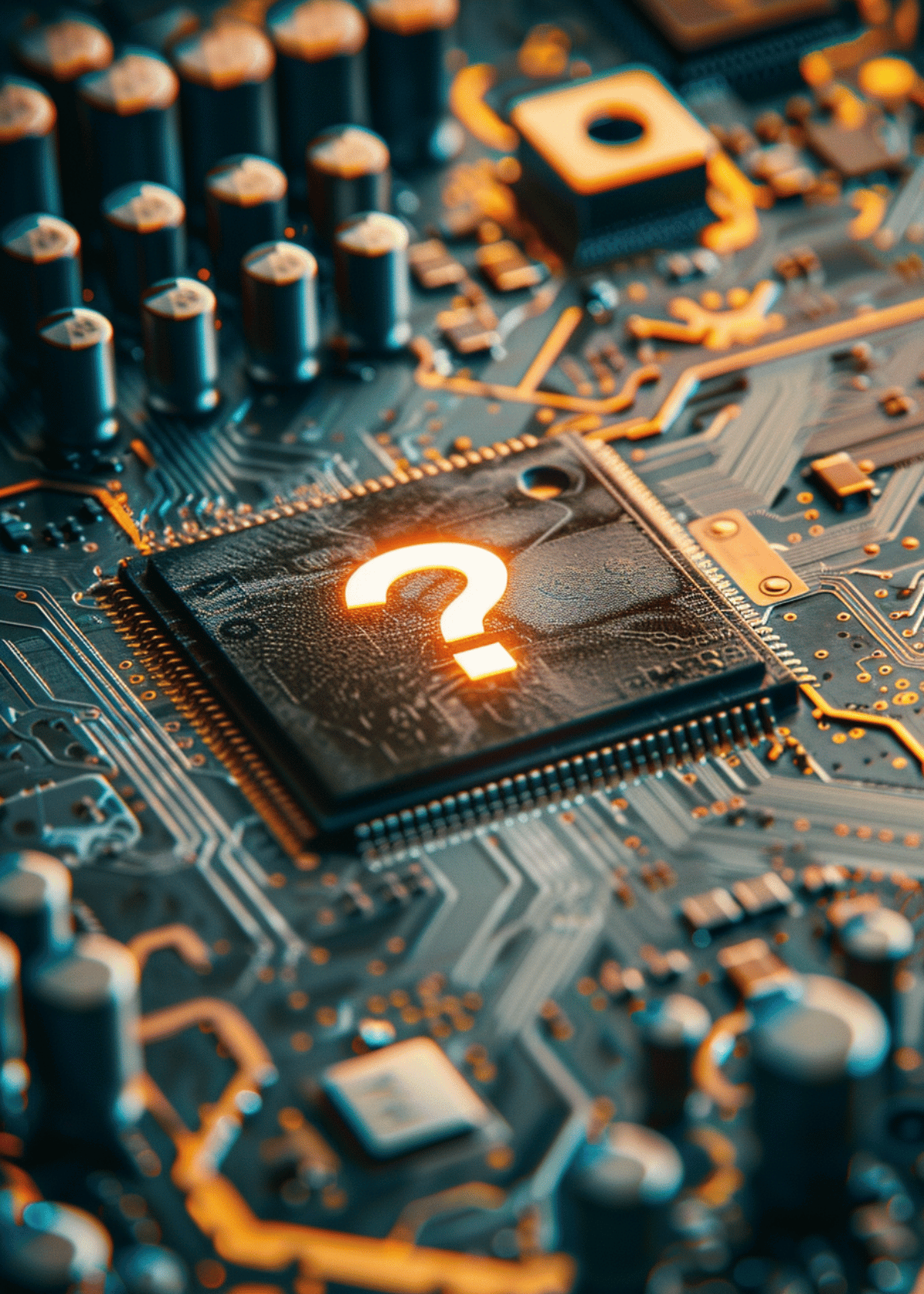Teleport Your House To The Future With Home Assistants 🤖

In today's fast-paced world, we are constantly seeking convenience and efficiency in our everyday lives. With advancements in technology, home assistants have emerged as an invaluable asset, helping us with various tasks and simplifying our daily routines.
From answering questions to scheduling appointments and controlling smart home devices, these intelligent devices are revolutionizing the way we interact with our homes. In this article, we will explore the benefits and features of home assistants, as well as their impact on our lives.
Home Assistants: What Are They?
A home assistant is a smart device that uses artificial intelligence (AI) and voice recognition technology to perform tasks and provide information. These devices, such as Amazon Echo, Google Home, and Apple HomePod, act as virtual assistants that respond to voice commands and queries. Equipped with a range of built-in features and the ability to connect with other smart home devices, home assistants have become an integral part of many households.
The Benefits of Having a Home Assistant
1. Hands-Free Convenience
Having a home assistant means you can control various aspects of your home without lifting a finger. Whether it's adjusting the temperature, turning on the lights, or playing your favorite music, you can simply ask your home assistant to do it for you. This hands-free convenience not only saves time but also allows for multitasking and enhances productivity.
2. Information at Your Fingertips
Home assistants are a wealth of information, providing instant answers to any questions or queries you might have. From current weather updates to general knowledge and even recipes, these devices can quickly retrieve information from the internet and deliver it to you in a matter of seconds. It's like having a personal assistant available at all times.
3. Home Automation and Integration
One of the greatest features of home assistants is their ability to connect and control other smart home devices. Through integrations with platforms like Nest, Philips Hue, and Samsung SmartThings, you can easily manage and automate various aspects of your home, such as thermostats, lighting, security cameras, and more. With a simple voice command, you can create customized routines and settings that suit your preferences.
4. Entertainment and Relaxation
Home assistants are also a source of entertainment and relaxation. You can ask your device to play your favorite music, stream podcasts or audiobooks, or even tell jokes to lighten the mood. Furthermore, these devices often have interactive games and trivia features that can engage the whole family and provide hours of entertainment.
5.Improved Convenience and Efficiency
One of the primary benefits of having a home assistant is the convenience and efficiency it offers. With just a simple voice command, you can ask your home assistant to perform various tasks, eliminating the need for manual actions. For example, instead of getting up to turn off the lights, you can simply say, "Hey Google, turn off the lights." This saves you time and effort, making everyday tasks easier and more convenient.
6.Access to Information and Knowledge
Home assistants also provide instant access to information and knowledge. Whether you need to know the weather forecast, the latest news headlines, or the answer to a trivia question, your home assistant can provide the information within seconds. By simply asking a question, you can tap into a vast database of knowledge, making it an invaluable tool for students, researchers, and those who love to keep up with current events.
7.Home Automation and Smart Device Control
With the rise of smart homes, home assistants have become an essential component of home automation systems. They can seamlessly integrate with various smart devices such as lights, thermostats, cameras, and door locks, allowing you to control your entire home with just your voice. You can adjust the temperature, dim the lights, lock the doors, and even monitor your home security cameras, all without lifting a finger.
8.Personal Assistant and Reminder
In addition to the convenience of controlling your smart home, home assistants can also serve as your personal assistant. You can set reminders for important tasks, appointments, or events, and your home assistant will notify you at the designated time. It can also help you stay organized by creating to-do lists, managing your calendar, and sending you reminders for upcoming deadlines. With a home assistant, you'll never miss an important appointment or forget to pick up groceries again.
↝ Are Home Assistants Vulnerable to Hacking?
One of the primary concerns surrounding home assistants is the potential for hacking. While these devices are designed to provide convenience and assist with various tasks, their connection to the internet raises security issues. Hackers could potentially exploit vulnerabilities in the software or gain unauthorized access to the devices, compromising personal information and privacy.
However, it is important to note that companies are continuously working to improve the security measures of home assistants. Regular software updates and patches are released to address any known vulnerabilities. Additionally, many devices offer features such as two-factor authentication and encrypted communication to enhance security.
↝ Do Home Assistants Record Conversations?
Another concern is whether home assistants record and store conversations. While these devices do constantly listen for activation commands, they typically only start recording and transmitting data once the activation command is recognized. However, this does not completely eliminate the risk of unintended recordings.
To address privacy concerns, most home assistants allow users to review and delete their voice recordings. Additionally, some devices offer a physical mute button or switch to disable the microphone, ensuring that no audio is captured when desired.
↝ Can Voice Data Be Misused?
The collection of voice data by home assistants raises questions about its potential misuse. People share a wide range of sensitive information with these devices, such as passwords, credit card details, and personal conversations. If this data were to be compromised, it could lead to identity theft, financial fraud, or other malicious activities.
To mitigate these risks, home assistants prioritize user privacy and employ various security measures. Voice data is often encrypted during transmission and stored securely. Furthermore, companies have strict privacy policies in place to ensure that user data is only used for the intended purposes, with consent from the users.
➱ The Future of Home Assistants
Home assistants, such as Amazon Echo and Google Home, have already made significant strides in improving our lives. These devices are capable of voice recognition, natural language processing, and even understanding context. They can provide weather updates, play music, set reminders, and much more. But their capabilities are expanding rapidly.
As technology continues to advance, home assistants will become more intuitive and sophisticated. They will learn from our habits and preferences, understand our emotions, and tailor their responses accordingly. Personalization will be key, as home assistants adapt to each individual's unique needs and preferences.
→ Enhanced Connectivity
In the future, home assistants will become even more interconnected with other smart devices in our homes. They will act as centralized hubs, seamlessly connecting with various appliances, security systems, and even vehicles. Imagine waking up in the morning, and your home assistant automatically starts brewing coffee, opens the blinds, and adjusts the thermostat based on your preferences. The possibilities are endless.
→ Smarter Artificial Intelligence
Artificial intelligence (AI) is at the core of home assistants, and its future advancements will shape the capabilities of these devices. AI algorithms will continuously improve, allowing home assistants to understand and respond to more complex queries. They will become better at recognizing and interpreting human emotions, helping provide personalized assistance and support.
→ Integration with Augmented Reality
As augmented reality (AR) technology becomes more prevalent, home assistants will likely integrate with this immersive technology. Instead of relying solely on voice commands, we may interact with holographic representations of home assistants in our physical space. This will enhance user experience and make interactions more engaging and intuitive.
→ Improved Natural Language Processing
Home assistants will continue to enhance their natural language processing (NLP) abilities. This means they will understand context better, allowing for more meaningful and accurate responses. NLP advancements will enable home assistants to have more natural and human-like conversations, making interactions feel more personal.
→ The Rise of Emotional Intelligence
In the future, home assistants may even possess emotional intelligence. They will be able to detect and respond to our moods, offering comforting words or suggesting activities to uplift our spirits. With emotional intelligence, home assistants can become valuable companions, providing emotional support and enhancing overall well-being.
→ Increased Focus on Privacy and Security
As home assistants become more integrated into our lives, privacy and security will become even more essential. Future home assistants will prioritize data protection and give users greater control over their personal information. Stricter privacy settings and robust security measures will ensure user confidence and trust in these devices.
→ The Importance of User-Friendly Interfaces
As home assistants become more advanced, it will be crucial to maintain user-friendly interfaces. The future of home assistants lies not only in their capabilities but also in their ease of use. Simplified interfaces, intuitive gestures, and seamless integration with other devices will ensure a smooth and enjoyable user experience.
Conclusion
Home assistants are transforming the way we interact with our homes and making our lives easier and more convenient. With their wide range of features and integrations, these intelligent devices have become an indispensable part of many households. As the technology continues to evolve, home assistants will only become more intuitive and powerful, further enhancing our day-to-day experiences. So go ahead, embrace the future, and let a home assistant be your virtual companion and helper in the home!





